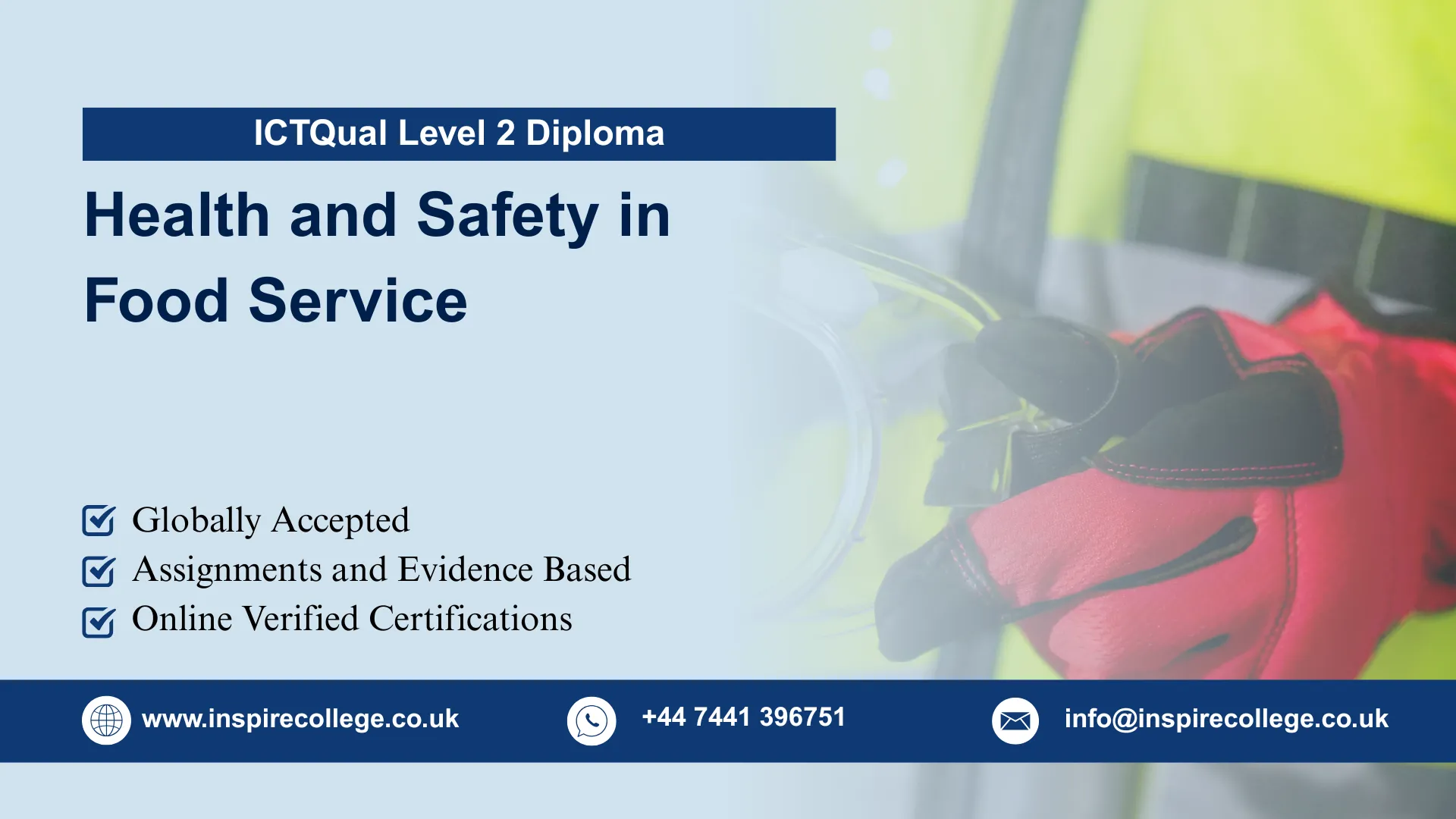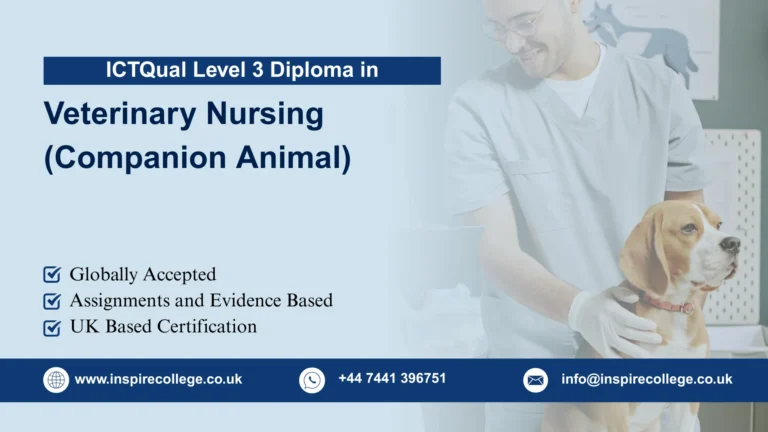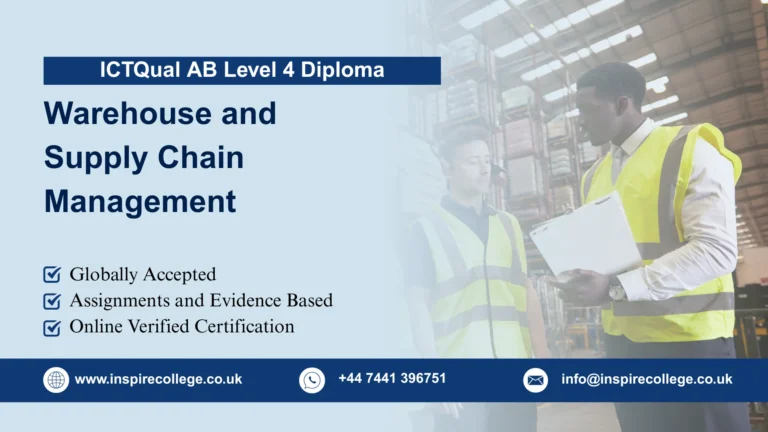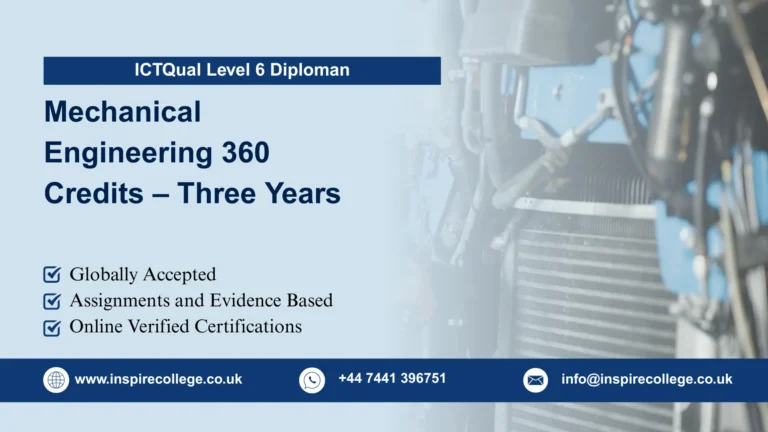
ICTQual Level 2 Diploma In Health and Safety in Food Service
Ensuring health and safety in food service is essential for protecting both consumers and staff, maintaining compliance with legal standards, and upholding the reputation of any food business. The ICTQual Level 2 Diploma in Health and Safety in Food Service is designed to equip learners with the essential knowledge, practical skills, and confidence needed to implement effective health and safety practices in food service environments.
ICTQual Level 2 Diploma In Health and Safety in Food Service covers the key principles of workplace safety, food hygiene, risk assessment, and regulatory compliance. Learners will explore critical topics such as safe food handling, personal hygiene, hazard identification, emergency procedures, and the implementation of safety protocols. By combining theoretical understanding with practical applications, the course ensures that learners can apply their knowledge directly in real-world food service settings, from restaurants and catering services to institutional kitchens and hospitality operations.
Participants will develop a strong foundation in health and safety management, enabling them to identify potential risks, prevent accidents, and promote a safe working environment. ICTQual Level 2 Diploma In Health and Safety in Food Service also emphasizes the importance of staying up to date with industry standards and legislation, preparing learners for further professional development in the food service and hospitality sectors.
Ideal for aspiring food service professionals, kitchen staff, supervisors, and managers, this Level 2 Diploma in Health and Safety in Food Service enhances employability and career progression while fostering a culture of safety and compliance. By the end of ICTQual Level 2 Diploma In Health and Safety in Food Service, learners will be fully equipped to contribute confidently to the safe, efficient, and compliant operation of any food service establishment.
Minimum Age:
- Learners must be at least 16 years old at the time of enrolment.
- This ensures participants have the maturity to understand and apply health and safety practices in real-world food service environments.
Educational Background:
- A basic level of education is recommended to engage effectively with course materials.
- Learners should possess reasonable literacy and numeracy skills to read, interpret, and follow health and safety procedures, complete written assessments, and maintain accurate records.
- No formal qualifications are required, making the course accessible to beginners and those seeking to enhance their professional skills.
Experience:
- No prior experience in the food service industry is necessary.
- The course is suitable for individuals who are new to the field or currently working in entry-level food service roles.
- Learners will build a strong foundation in health and safety practices, preparing them for a variety of roles in kitchens, restaurants, catering, and hospitality operations.
Language Proficiency:
- Non-native English speakers may be required to demonstrate a minimum English language proficiency equivalent to CEFR A2.
- This ensures learners can fully understand the course content, participate in discussions, complete assessments, and apply safety procedures accurately in English-speaking work environments.
Mandatory Units
The ICTQual Level 2 Diploma In Health and Safety in Food Service, to achieve the qualification candidates must complete all the mandatory units form the following :
Mandatory Units
- HACCP Monitoring and Corrective Actions
- Global Food Safety Standards (ISO 22000, Codex)
- Advanced Food Storage and Temperature Control
- Food Safety Legislation and Regulatory Compliance
- Training and Supervising Food Handlers
By the end of this course, learners will be able to:
- HACCP Monitoring and Corrective Actions
- Understand the principles of Hazard Analysis and Critical Control Points (HACCP) and its role in maintaining food safety.
- Monitor critical control points to ensure compliance with established safety standards.
- Identify deviations or hazards and implement appropriate corrective actions.
- Maintain accurate records to support effective food safety management and audits.
- Global Food Safety Standards (ISO 22000, Codex)
- Recognise the key elements of international food safety standards and frameworks.
- Understand the structure, purpose, and requirements of ISO 22000 and Codex Alimentarius guidelines.
- Apply global food safety standards to local food service practices.
- Support organisational compliance with international food safety expectations.
- Advanced Food Storage and Temperature Control
- Identify proper storage conditions for different types of food to ensure safety and quality.
- Use temperature control equipment effectively to prevent spoilage and contamination.
- Prevent cross-contamination through correct storage procedures and handling techniques.
- Monitor, document, and analyse temperature readings to maintain safety standards.
- Food Safety Legislation and Regulatory Compliance
- Understand national and international food safety laws, regulations, and statutory requirements.
- Identify employer and employee responsibilities for maintaining compliance.
- Follow procedures to ensure food service operations meet legal and regulatory requirements.
- Respond appropriately to inspections and enforcement actions from regulatory authorities.
- Training and Supervising Food Handlers
- Communicate food safety procedures clearly and effectively to team members.
- Support the training, guidance, and development of food handlers in daily operations.
- Monitor staff practices to ensure adherence to hygiene and safety standards.
- Promote a positive food safety culture through supervision, coaching, and continuous guidance.
Ideal Learner for ICTQual Level 2 Diploma in Health and Safety in Food Service
- Aspiring Food Service Professionals:
- Individuals planning to start a career in restaurants, catering, hospitality, or institutional food service.
- Learners seeking a strong foundation in health and safety practices to build a safe and compliant working environment.
- Entry-Level Food Handlers and Kitchen Staff:
- Staff currently working in kitchens, cafeterias, or food outlets who want to improve their knowledge of food safety standards and procedures.
- Ideal for learners aiming to enhance practical skills in hygiene, temperature control, and HACCP compliance.
- Supervisors and Team Leaders:
- Individuals responsible for managing kitchen operations or supervising food handlers.
- Learners who want to improve team compliance with hygiene regulations and maintain high food safety standards across the workplace.
- Health and Safety Enthusiasts:
- Anyone interested in developing professional knowledge of HACCP, food hygiene, temperature monitoring, and regulatory compliance.
- Suitable for learners seeking to apply best practices in diverse food service environments.
- Non-Native English Speakers:
- Learners with at least CEFR A2-level English proficiency who want to confidently follow procedures and complete assessments.
- Ensures learners can fully engage with the course content and communicate effectively in English-language work settings.
- Individuals Seeking Professional Development:
- Learners aiming to enhance employability, career prospects, and professional qualifications in food service, hospitality, or catering sectors.
- Ideal for those pursuing advancement to supervisory or managerial roles.
- Compliance-Focused Learners:
- Individuals motivated to implement and maintain workplace health and safety standards.
- Learners seeking to ensure legal, regulatory, and industry compliance in food service operations.
Register Now
ICTQual Level 2 Diploma In Health and Safety in Food Service






